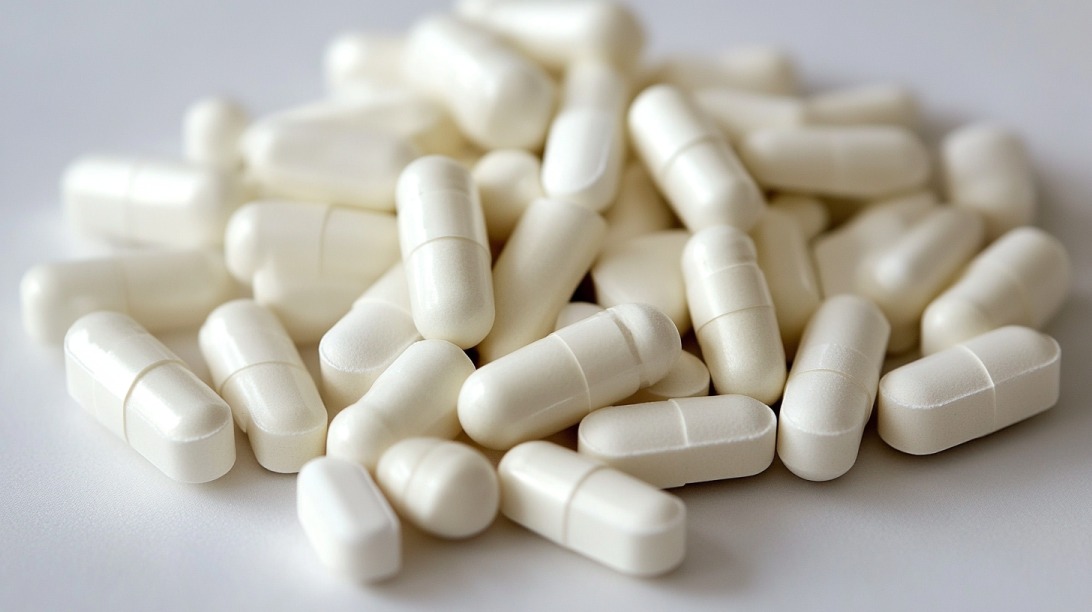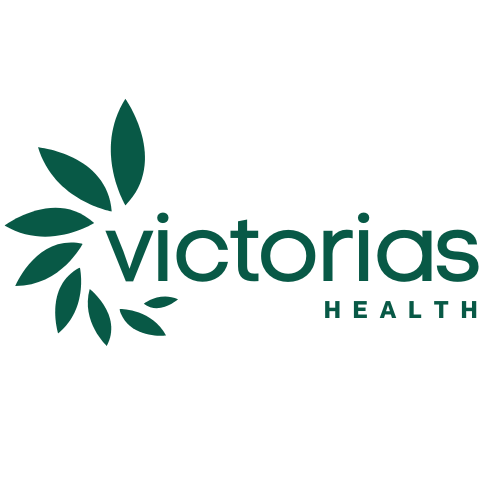Strong bones and healthy teeth are not just a matter of genetics—they are a direct reflection of nutrient intake across a person’s lifespan. Bones are living tissue, constantly remodeled and repaired, while teeth require both mineral density and structural integrity to resist decay and erosion.
The human skeleton reaches peak bone mass by the late 20s, after which bone loss slowly begins. Meanwhile, tooth enamel—the hardest substance in the body—cannot regenerate, making nutritional support critical to long-term oral health.
According to the World Health Organization (WHO) and the National Institutes of Health (NIH), deficiencies in specific vitamins and minerals are directly linked to osteoporosis, periodontal disease, dental caries, and slowed skeletal development.
Proper nutrition doesn’t just prevent these conditions—it also supports recovery, enhances mineral density, and ensures that structural proteins and collagen function optimally.
1. Calcium

- Primary Role: The foundational mineral for bones and teeth
- Daily Requirement: 1000–1300 mg/day (higher for teens, elderly, pregnant women)
Calcium makes up 99% of the mineral content in bones and teeth. It provides hardness and structure, supports jaw integrity, and enables the strength needed to withstand pressure from chewing. The remaining 1% plays a critical role in blood clotting, nerve transmission, and muscle function.
Best Sources:
- Dairy (milk, yogurt, cheese)
- Sardines with bones
- Leafy greens (kale, bok choy)
- Fortified plant milks and orange juice
Note: Without adequate calcium, the body will pull it from bones, weakening the skeleton over time.
2. Vitamin D
- Primary Role: Enhances calcium absorption in the gut
- Daily Requirement: 600–800 IU/day (up to 2000 IU for deficiency correction)
Even a high calcium intake is ineffective without sufficient vitamin D, which enables its absorption through the intestinal lining and regulates calcium and phosphate balance in the bloodstream. Chronic vitamin D deficiency leads to rickets in children and osteomalacia in adults.
Sources:
- Sunlight (UVB exposure to skin)
- Fatty fish (salmon, mackerel)
- Fortified dairy and cereals
- Supplements (D3 is most bioavailable)
Deficiency is widespread, especially in regions with limited sunlight or in people with darker skin.
3. Phosphorus

- Primary Role: Second most abundant bone mineral, forms calcium phosphate
- Daily Requirement: 700 mg/day
Phosphorus combines with calcium to form hydroxyapatite, the dense mineral that provides rigidity to bones and enamel. It also contributes to cell signaling and energy metabolism (ATP production).
Food Sources:
- Meat, poultry, eggs
- Dairy products
- Legumes
- Whole grains and nuts
Important: Excess phosphorus (especially from soda additives) without calcium can cause calcium leaching from bones.
4. Magnesium

- Primary Role: Regulates calcium transport and bone crystal formation
- Daily Requirement: 310–420 mg/day
Magnesium stabilizes the bone matrix, activates vitamin D in the kidneys, and plays a role in over 300 enzyme reactions, including those involved in bone remodeling. Low magnesium leads to fragile bones and increased inflammation around the gums.
Top Sources:
- Pumpkin seeds
- Almonds and cashews
- Spinach and chard
- Black beans and avocados
Magnesium is often deficient due to processed food consumption and poor soil mineral content.
5. Vitamin K2
- Primary Role: Activates proteins that bind calcium to bone matrix
- Daily Requirement: ~90–120 mcg/day (no established RDA, but research-backed)
Unlike vitamin K1 (blood clotting), vitamin K2 (menaquinone) activates osteocalcin, a protein that locks calcium into the bone and prevents it from accumulating in arteries. It also enhances jawbone density and periodontal ligament strength.
Sources:
- Natto (fermented soy) – richest source
- Egg yolks, liver
- Aged cheeses
- Fermented dairy
K2 is often overlooked but crucial for bone mineralization and arterial calcification prevention.
6. Vitamin C

- Primary Role: Required for collagen synthesis in bone and dentin
- Daily Requirement: 75–90 mg/day (more in smokers or wound healing)
Collagen forms the organic framework upon which calcium and phosphorus are deposited. In both bone and tooth dentin, collagen provides flexibility and fracture resistance. Vitamin C deficiency leads to gum bleeding, tooth loss, and fragile bones (scurvy in severe cases).
While most people associate diet with bone health, it’s important to recognize the direct connection between nutrient intake and daily dental care outcomes. According to clinical research in periodontal medicine, nutritional deficiencies often present first as oral symptoms: bleeding gums, enamel erosion, bad breath, and receding gum lines. Proper intake of vitamins C, D, K2, and magnesium, among others, not only strengthens enamel and dentin but also reduces the incidence of gingivitis and early tooth decay.
Best Sources:
- Citrus fruits (oranges, lemons)
- Strawberries, kiwi, bell peppers
- Broccoli, Brussels sprouts
Because vitamin C is water-soluble, it must be consumed regularly.
7. Zinc

- Primary Role: Aids in collagen synthesis, cell division, and tissue repair
- Daily Requirement: 8–11 mg/day
Zinc contributes to osteoblast (bone-building cell) activity and supports immune function—critical for preventing gum infections and periodontal disease. It’s also present in enamel matrix proteins, making it vital for tooth development.
Dental care isn’t just brushing and flossing—it’s the systemic support of the tissues involved. Nutrient-rich diets act as a foundation, supporting regular hygiene habits and enhancing the body’s ability to resist oral bacterial invasion. Maintaining consistent intake of the nutrients outlined here is an essential part of comprehensive dental care that goes beyond surface cleaning.
Top Sources:
- Oysters and shellfish
- Red meat
- Pumpkin seeds
- Lentils
Deficiency may result in delayed bone healing and increased tooth decay.
8. Fluoride
- Primary Role: Increases enamel resistance to acid and decay
- Recommended Range: 0.7–1.2 ppm in drinking water; toothpaste use daily
Fluoride replaces hydroxyl ions in the enamel matrix to form fluorapatite, which is more resistant to demineralization from acid attacks (bacterial or dietary). In bones, fluoride may improve density but excessive intake can lead to skeletal fluorosis.
Sources:
- Fluoridated tap water
- Fluoride toothpaste and mouth rinses
- Black tea, seafood (trace amounts)
Fluoride works topically for teeth, so brushing habits are as important as intake.
9. Boron

- Primary Role: Enhances magnesium and vitamin D metabolism
- Suggested Intake: 1–3 mg/day (not officially established)
Though not officially categorized as “essential,” boron plays a supportive role in bone strength by influencing hormones (like estrogen), aiding calcium retention, and stabilizing bone-building micronutrients.
Food Sources:
- Raisins, prunes
- Almonds
- Avocados
- Dried apricots
Emerging research connects boron to bone mineral density preservation, especially in postmenopausal women.
10. Protein (Specifically Collagen-Forming Amino Acids)
Посмотреть эту публикацию в Instagram
- Primary Role: Structural foundation for bone matrix and dentin
- Daily Requirement: 0.8–1.2 g/kg of body weight
Protein makes up about 50% of bone volume (by content). It’s critical for collagen synthesis in bones and teeth, especially during growth, recovery, and aging. Glycine, proline, and lysine are key amino acids needed for forming stable collagen chains.
Sources:
- Eggs, dairy, poultry, beef
- Bone broth
- Soy and legumes
- Gelatin/collagen supplements
Inadequate protein—even with sufficient minerals—can lead to weaker bones and receding gums.
Bonus: These foods are neccessery to avoid if you don’t want your teeth to be ruined!

